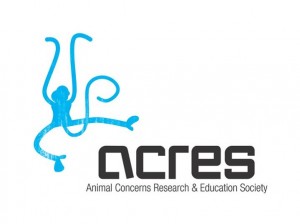Set dolphins free, group urges gov’t
An international animal welfare group urged the government on Saturday to free the 25 dolphins at Ocean Park in Subic that are being groomed to be among the next big attractions in a Singaporean marine park.
Animal Concerns Research and Education Society of Singapore (ACRES) executive director Louis Ng launched a petition addressed to the Bureau of Fisheries and Aquatic Resources (BFAR) to “rescue” the dolphins, an endangered species, and return them to their place of origin in the Solomon Islands.
Ng said 27 bottlenose dolphins were caught in the waters of the Solomon Islands in Oceania, near Papua New Guinea, in 2008 to be part of Resorts World Sentosa’s new marine show in Singapore.
The group asked the Philippine government not to reexport the animals to their handlers in Singapore in support of international calls to stop the trafficking in dolphins.
“We ask the Philippine government to do the right thing. The 25 dolphins in Subic should not be reexported to Singapore and instead should be set free and sent back to the Solomon Islands,” said Ng.
Of the 27 dolphins captured, two died while in Langkawi, Malaysia, and the rest were brought to Subic for “training” while the marine park in Singapore is under construction.
In May, ACRES and US-based group Earth Island Institute (IIE) launched a campaign to stop the trafficking in dolphins. The group has garnered 680,000 signatures worldwide and has started an online petition in the Philippines at www.saddestdolphins.com.
Dolphin suicide
Ng explained that dolphins are highly social marine animals and long-distance swimmers. When imprisoned in cages or tanks, they could die—or commit suicide.
“Dolphins travel and swim a distance of 113 kilometers in 10 days, imagine if you were in the dolphin’s situation and your world had shrunk to a square sea pen,” Ng said in a press conference.
Ng, a marine researcher and biology expert who graduated from the National University of Singapore, cited scientific studies from the Union for the Conservation of Nature (IUCN) to show that dolphins are not as “adaptable” as other marine animals featured in amusement parks.
“The dolphins don’t do well in sea tanks. In some cases when they are caged, they even commit suicide. They don’t breath and go underwater until they die,” Ng said.
“While captured, they are housed in an alien environment and fed dead fish as reward. The worse part is that they have to perform to be fed. If they don’t do tricks, they won’t be properly fed,” added Ng.
Hunting and trafficking ban
Ng said the Solomon Islands government has passed a law to ban the hunting and trafficking in dolphins starting January 2012. Other countries such as Chile, Costa Rica and Mexico have followed suit.
He also said that all marine parks in the United Kingdom no longer feature dolphin shows in support of international laws.
“Marine parks in the UK are still profitable even without dolphins. We had a dialogue with the RWS managers, but they did not listen to us. Western countries are starting to pick up what we’re lobbying. We hope the Philippines will take the lead in Asia,” said Ng.
The group, in a letter addressed to Agriculture Secretary Proceso Alcala, stressed that dolphins are categorized as an “endangered species” by the BFAR.
ACRES has put up an exhibit at Bonifacio High Street, Taguig City, and is set to go on an educational tour starting at Ateneo de Manila University on Nov. 17-18; University of the Philippines on Nov. 24-25; and De La Salle University on Nov. 21 to 26.

